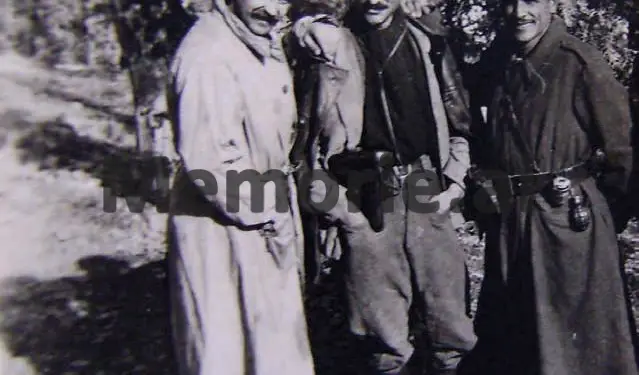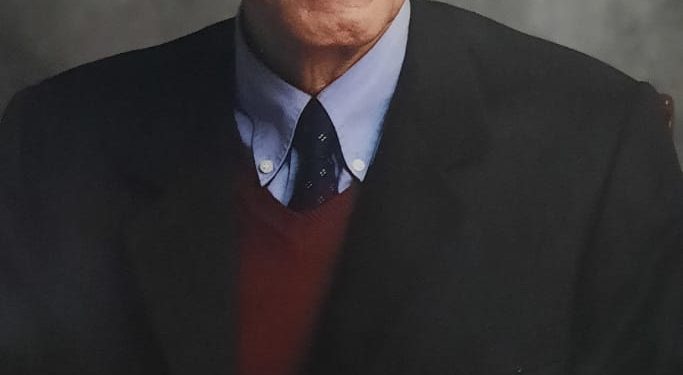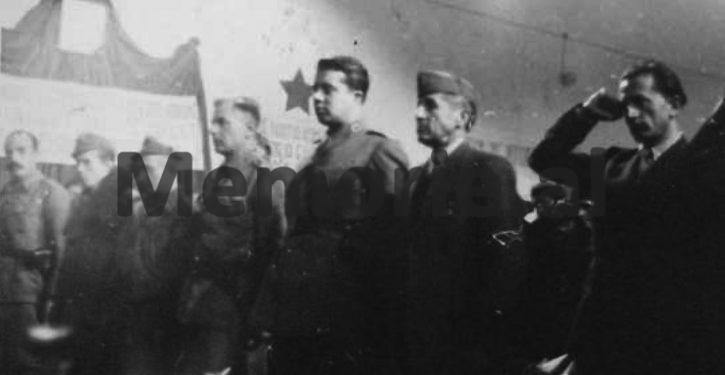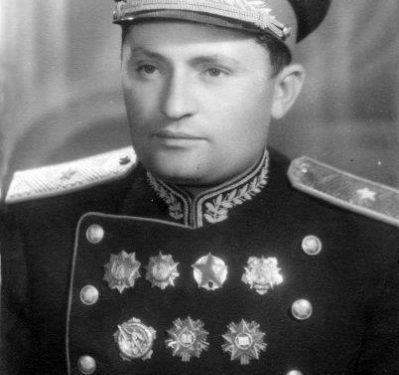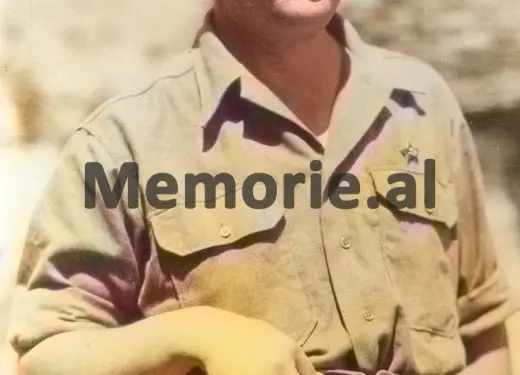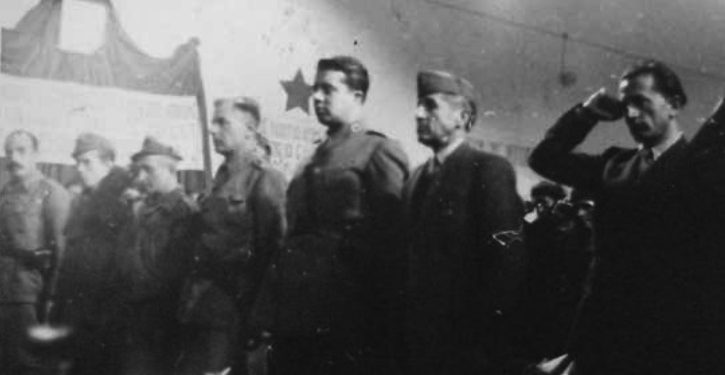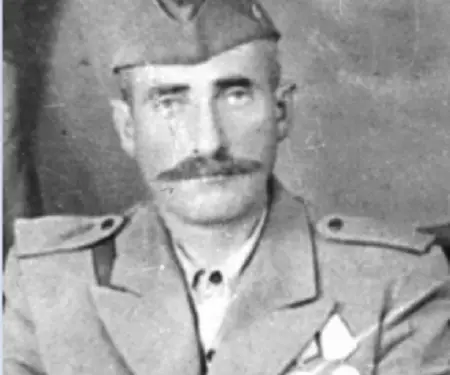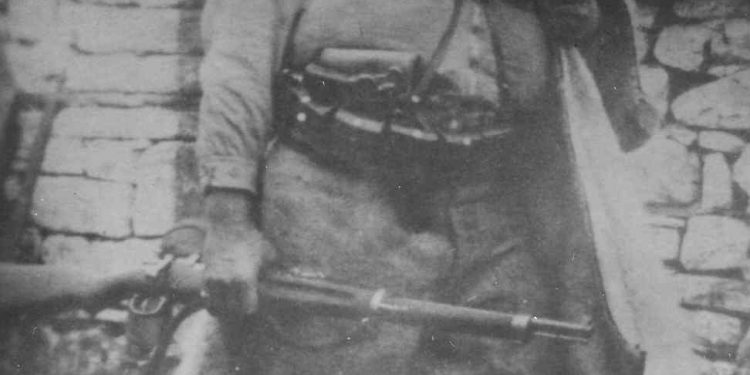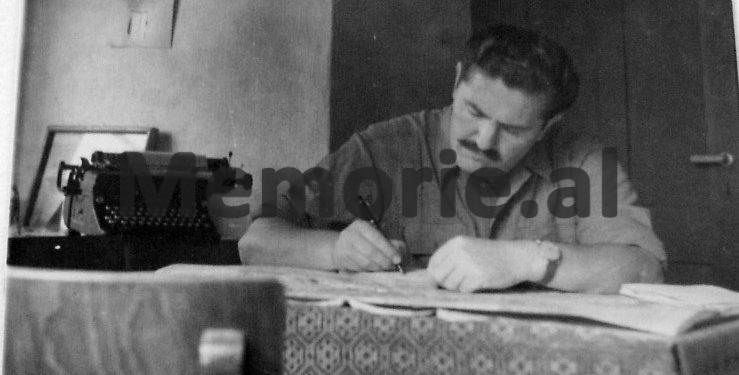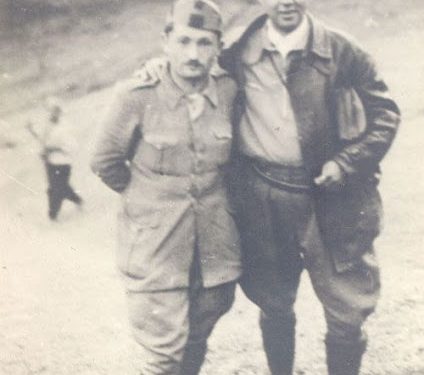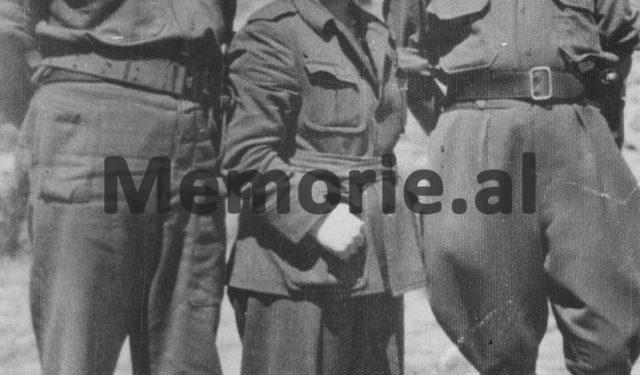By Elmas Guga
Second part
Memorie.al/ Based on the communist philosophy, Josif Broz Tito and the senior leadership of the Yugoslav Communist Party, during the war worked and fought hard to suppress the spirit of nationalism in the peoples of the former Yugoslav kingdom. According to their sources, they had more to do with Croatian and Slovenian nationalism and less with Macedonians. All this was done to enable, after the war, the unification of these peoples into a single union, as was done with the formation of the Yugoslav Federal Republic. This philosophy of acting together with many things happened to us in Albania during the war and then until 1948 when the friendship with Yugoslavia was broken, shows that Tito had the same goals and plans for Albania. To manage the formation and senior leadership of the SNP, which should lead the anti-fascist resistance in Albania until the liberation of the country. In addition, Tito would demand from her the suppression of the spirit of nationalism, in other words, the suppression of the anti-Yugoslavism of the Albanians.
All this should be done to enable the unification of Albania with Yugoslavia after the liberation! But who was this Albanian anti-Yugoslavism?! – 100% of the Albanian leadership were like that. Everyone wanted a free, independent and democratic Albania after the liberation. This was demanded by all the Albanian communists of the 1930s. This was demanded not only by the anti-fascist nationalists but also by those of Balli and Legality. To demand the suppression of the spirit of Albanian nationalism meant to suppress their state-building spirit. Even to think such nonsense is terrifying! For five centuries, the Turks could not extinguish the state-building spirit of the Albanians. While Tito with his own did quite a bit in this regard for a little over five years! I do not know whether Tito used “forms of education” or harsh methods to oppress himself in Yugoslavia!
But I understand well what happened to the Albanians. Tito supporters in Tirana have used very harsh methods. Political eliminations and methods of discrimination and exclusion. The secret agreement signed in Belgrade by Tito and Enver in 1946 for the protection of the Albanian leadership has been a step away from the unification and loss of Albanian sovereignty. The unprecedented terror of power in the people and the “castration” of the Constituent Assembly with the elimination of the parliamentary opposition in the period 1945-1948, were repressive measures that would precede the act of annexation of Albania under Yugoslavia. Enver Hoxha’s march to Belgrade, like Shefqet Vërlaci to Italy in June 1939, did not become a reality thanks to the intervention of Stalin, to whom we must acknowledge this good even though he was a dictator.
Enver Hoxha escaped this dangerous situation for the Yugoslavs of Albanian politics by holding the flag of the sworn anti-Yugoslavism, sacrificing all his comrades, with whom, as their boss, he had worked preparing the black plan of annexation… Then the propaganda in the people made it known that they were lucky that Stalin had revealed Tito’s betrayal of world communism which wanted to annex Albania as well! Meanwhile, it was said that Enver Hoxha with his ingenuity had understood that in the senior leadership of the Party there were enemies like Koçi Xoxe, Pandi Kristo, Kristo Themelko, etc., who had collaborated with Tito for the great evil!!
In sync with this propaganda at that time, the song was raised and sung around us: “A letter was sent by Stalin / directly to Albania / Enver took it in his hand / and no one else” d .and continued… he did it to Pandit with his eyes. ” How did the poor people know that Koçi, Pandi, Kristo Themelko, etc., had acted under Enver’s orders for everything they did to terrorize the people, especially in 1945-1948. To justify the turn, Enver and his followers made an intense propaganda to the people, where they expressed the joy that they had escaped from a dangerous hostile group and at the same time expressed their apology for the tragedies that had happened to the people because of Koçi Xoxa’s group! Collective public apology was demanded for hundreds of people killed without trial and with farce trials.
It was rumored at the time that among those killed in the crowd were communists who had been more active with discussions in party organizations in several districts of the country. Apologies were also demanded for several hundred deaths in prisons from torture, as well as the acquittal of the courts. Many others expelled from the Communist Party were rehabilitated because they came from middle-class and wealthy families as well as those punished with dismissals. Among those dismissed from official positions from the time of Koçi (understand with the hand of Enver Hoxha) we are mentioning only two dismissals of the high nomenclature in the army: General Spiro Moisiu and Mehmet Shehu. In February 1948, Spiro was fired as Chief of Staff and retired at the age of 46. Mehmet Shehu, who took over this position, held it for only a few months and fired him, leaving him without a job. Maybe Enver Hoxha, in the conditions of the preparations for the final unification with Yugoslavia, was afraid of a coup d’etat by the military! While the union card was left in their hands, their rehabilitation was done, expressing the “love and respect” they had for them.
But let’s go back to the beginning, when the “foundations of friendship” were laid with Tito and the Yugoslav Communist Party: The formation of the SNP. Josip Broz Tito had in mind to manage the political situation and LANÇ not only as a patronage taken by the Comintern, but especially for the expansion it had for our country. For this purpose, in 1941 he sent to Albania his two emissaries, Miladin Popovic (Ali) and Dusan Mugosha (Saliu). They probably entered Albania as communists to help their fellow Albanian communists. It seems that with this status “Aliu” and “Saliu” were arrested and imprisoned by the Italian fascist authorities in the village of Brezhdan. Then Mustafa Gjinishi with some communists enabled their escape. (As for the irony of fate, Miladin and Dushani, as two great enemies of the Albanian communists and LANÇ in Albania, as they did for dozens of others, sealed the shooting of Mustafa Gjinish!)
Naturally after his release from prison, Tito’s two emissaries became part of the communist movement in Albania. They got acquainted with leaders and communists, with their worldview and ideals for a free Albania. They also met Enver Hoxha, who understood his inclinations for power in exchange for fulfilling the tasks that Belgrade posed for Albania. Thus, the emissaries became the main factor in preparing the founding meeting of the SNP. With Enver as the “Ace” of their politics, Miladin and Mugosha dominated the senior leadership of the SNP where they could do everything that Tito would like to do in the senior leadership of the SNP and LANC in Albania.
The two main pillars of the SNP political program, as they were written, were very encouraging for the Albanian people and communists. First it was said that the SNP would lead the mobilization and struggle of the Albanian people against foreign invaders until the liberation of the country. Secondly after liberation the people with their representatives would be led by a democratic government. Unfortunately for the communists and the Albanian people for democratic governance, during the war not a single day was worked, even Enver Hoxha did not think for a minute about such a cause. He had made the contract with Tito’s emissaries that in the establishment of the SNP, to fight for the suppression of the nationalist spirit of the Albanians, in other words to fight against his own people.
The SNP de jure had a provisional central committee but de facto was the trio Enver, Miladin, Dushan. This three ruled decision-making not only at the head of the SNP but also LANÇ., Especially regarding the war front for the suppression of the national spirit of the Albanians. In other words, the struggle to suppress the anti-Yugoslavism of the Albanians has been the main front of the power struggle for Enver Hoxha and Tito. The success of this great war folly has not been very easy for Enver Hoxha, but it was facilitated so much and became like “bread with cheese” thanks to the cooperation with Tito ora’s two oracles. They set and sealed everything by becoming like triplets with Enver. As for the LANÇ front, Enver Hoxha had a collected mind. The security for this came from the freedom-loving spirit of the people and their partisan sons. From the unparalleled patriotism of the commanders and commissars of the squads, battalions, brigades and divisions and to the General Staff of the Army commanded by Spiro Moisiu. The only concern for the political commissar for this front has been how to put in line all those he would put in the red circle to punish, discriminate and expel from power the next day.
Let us now return to the most difficult front: the struggle against the anti-Yugoslavism of the Albanians. This war against all was made possible through the introduction of the spirit of terror into the ranks of the Communists as well as the Anti-Fascist Movement. While talking about the climate of terror, we cannot stop at Dushan Mugosha, not only as one of the decision-makers of the trio for the murders but also as their interpreter on the battlefield. Dushani, as eyewitnesses of the time claim, was “a Serb with red eyes who was not satisfied with Albanian blood”. For this truth we will stop only in a few cases, among dozens of such, which are witnessed by the protagonists of that heroic war of the Albanians.
On the day of the inauguration of the 1st Assault Brigade, Dushani had declared that if there was a rifle fired against this brigade, in any village, they would avenge it by exterminating all the people in that village, old and children! In another case while this brigade was on march, two of its partisans were given permission for a short time so that the brigade could rest near their village. Unfortunately, they returned when the brigade was lined up. At Dushan’s insistence both partisans were shot! Even the partisan trials where the boys were shot just because they had taken a bunch of grapes in the vineyard, or who did not know who had put a pair of wool socks in their bag, have been the product of the sick mind of the anti-Albanian Mugosha. It is proven that the folly of the murders of 67 Ballistas in Lushnja in October 1943, was his act to increase tensions between the anti-fascist front and the Balli nationalists.
Dushan Mugosha has been a man hated to the point of disgust not only by the partisan leadership in the Berat region but also by ordinary partisans.
In our judgment, the front of the fight against the anti-Yugoslavism of the Albanians, based on many things that have happened to us not only in the time of LANÇ, can be summarized in three main directions:
Through the policy of cake and basket to all those, communists and nationalists, who led and fought on the battlefields. According to this policy for the good of the homeland and the party, in the name of friendship and sister party of Yugoslavia and great friend Tito, were invited to actions of political elimination and other activists of the movement. All those who undertook such actions, seemingly with patriotic “sugar”, as soon as they performed them initially with pleasure, felt like soldiers and victims of the commander. One could be eliminated to cover up the sin they had committed but most would need it for other actions. So much so that the commander would need it and they could not dare to object that they remembered the first sin. Thus, the army of political sinners was formed thanks to the policy of the cake. What about those who could not eat the “cake”? Even for them a cure was found through the politics of political intrigue. The latter was sweetened by the so-called “political mistake”.
Mestan Ujaniku and Gjin Marku, were among many LANÇ captains who did not accept the unjustified killings among Albanians, so political intrigue was used against them for what is considered the “Berat Agreement”. As a rule, intentionally or unintentionally, the intrigue was formalized. After that, those accused of “political error” would be victims of the boss who could build as many other intrigues as he wanted until he “settled accounts with the victim”. “The Party has forgiven you a lot, you have made several mistakes and we have forgiven you, now let justice be done to you…”. Thus, the warlords were eliminated mainly after the liberation of the country.
For the senior leaders of the SNP and members of the General Staff of the Army who could not be given “cake” duties, the cart was reserved. Enver Hoxha, through political intrigues, provided them with “physical elimination, discrimination in prisons and internments, up to the assignment of low-level duties. All of them thought differently from comrade Enver about Albania after the liberation and had this tragic end. In this way, Enver Hoxha set political traps for all LANÇ leaders from the lowest to the highest levels to ensure elimination and discrimination.
- Through the policy of keeping away from power the educated people with merit and contributions in the war. The crackdown on these people has just been addressed above with the cartel policy which was used not only in the war but continued even after the liberation. We are treating this war especially because the power produced by the Përmet Congress proved hostility to such people. The Përmet Congress elected the general counsel of the Anti-Fascist Front which had the attributes of wartime legislative power (parliament) which elected the General Committee with the powers of the war government.
Congress divided their ranks and hierarchy in the military. The quality of those who were elected and received high ranks has been a great disappointment. I do not know who discussed this problem but I know very well that Mestan Ujaniku has had harsh criticism that not a few elected to the council were with zero contributions and completely unknown to the people. Mestani harshly criticized the criteria for awarding degrees. The list proposed by the partisan command of the Berat region with outstanding contributions to the war was completely rejected. In their place were promoted people without school and in merit in the 3rd or 4th rank. But why did Enver care so much about people without school and without merit in the war? Of course, he did not feel sorry for them but he needed them to rule. Educated and deserving people could not be lined up as they would like!
Enver Hoxha took more power in the Përmet Congress, took the rank of colonel-general and the post of commander-in-chief, moving Spiro Moisiu to a lower post. The alibis made today about the shadows in the career of General Spiro Moisiu and his true friends, are hiding behind the finger from the truth. Spiro Moisiu’s coup was part of Enver Hoxha’s war strategy to suppress the nationalist spirit of the Albanians.
- By keeping away from the Antifascist Front the middle and wealthy strata of the people, including vocal intellectuals and opposition groups. The Berat Plenum held on November 23-27, 1944 had harsh criticism of Enver Hoxha who had done great damage to the war through personal policies in this regard.
The national platform of the Peza Conference was a great unifying political capital of the Albanians in the fight against the occupiers. But more than the ballistas, Enver sabotaged her decisions from within the Antifascist Front. As soon as the Front was recognized by the allies as the only force fighting fascism, Enver Hoxha started the fight to keep these layers away. The Ballsh meeting aimed at co-operating with the nationalists in December 1942, as is recently witnessed, was criticized a few days later by Dusan and Kristo Themelko who were delegates from the Front. Their message was clear. There are many such episodes during the war, even if only from the region of Berat. From orders to shoot people of these strata to arrogant behavior towards them while asking for food, clothing and money to help the war. As we will see later, his orders in the Berat region found complete opposition. There were two messages that Enver Hoxha gave in keeping these layers away from the Front, firstly he would not share power with anyone and secondly these layers would be the main enemies of his power after the liberation! Doesn’t this speak about Enver Hoxha’s war strategy for suppressing the national spirit?!
- Through the policy of “remove and do not break” with the Anglo-American allies during the war until 1948. Our allies with military missions in Albania made maximum efforts to help the Albanian people to have a democratic government after the war. For this they fought hard for the unification of the Albanian political factor in the fight against the invaders. In these efforts of the allies, Enver Hoxha was very insincere. He linked the fate of Albania and his own with Tito. He could not cooperate with any political factor in the country as long as he was determined in the war to suppress the national spirit of the Albanians. In short, Enver Hoxha fought for a dictatorial regime as it happened. The policy of acting against the allies during the war testified to his short-term political and military interests. His disregard for the Allies was passed down to the base to ordinary partisans. The mindset that our destiny was related to our great friend Tito ruled everywhere. It was this mentality that the partisans in the winter operation watched the English mission as it exhausted the mountains as they fell into the hands of the ballistas. The attempts of our historians to treat the previous regime as a communist accident or as a “gambling card” on the table of the three greats or worse as diplomatic mistakes of the Anglo-American allies, are to weep and laugh. Our evil was predestined and cooked by Tito with the hands of Enver Hoxha.
Our historians must tell us the story of the truth of Albanian-Yugoslav relations in the period 1941-1948. In my opinion, this is the darkest period in the entire history of the Albanian state./Memorie.al
Continues in the next issue




